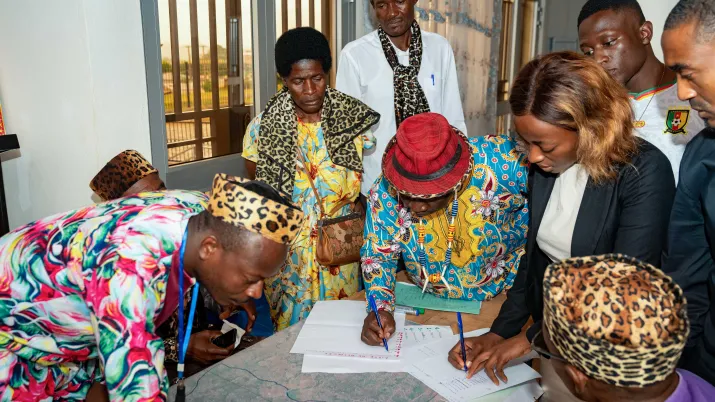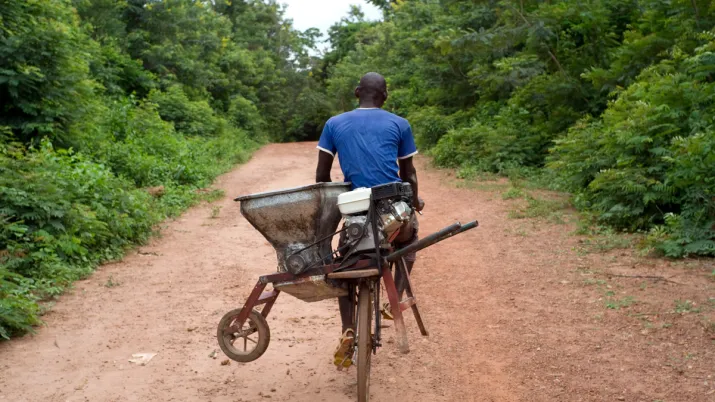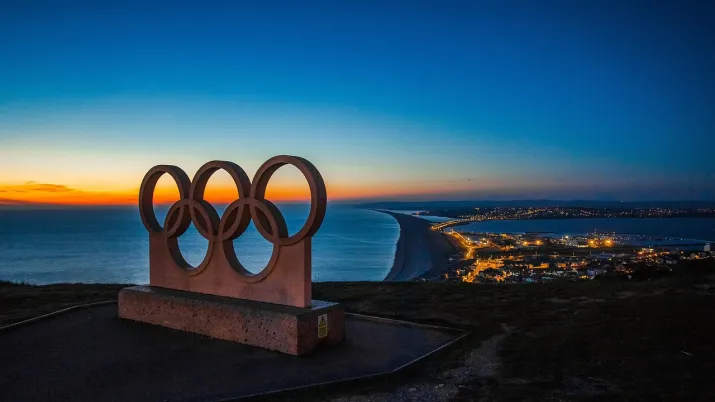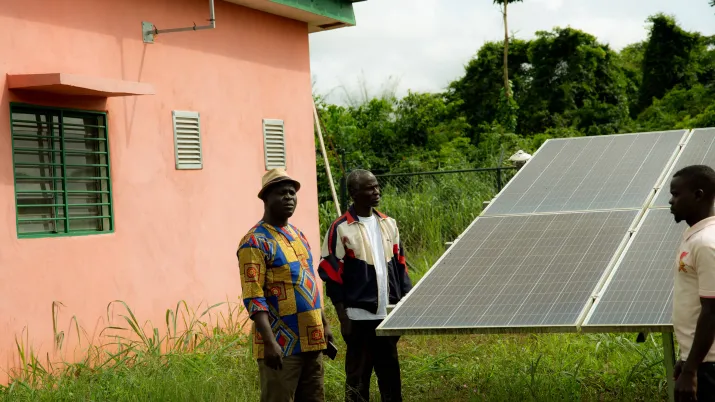Share the page
Supporting cities and the industrial sector in the face of the global climate challenge
Published on
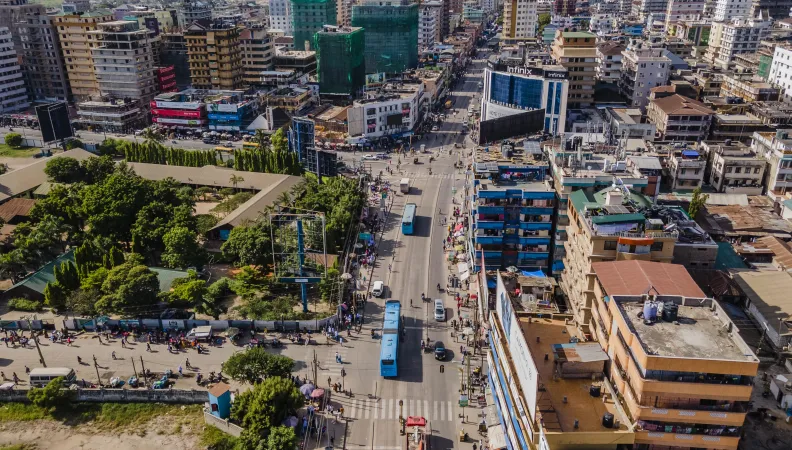
Aligned with the priorities of several international frameworks, including Sustainable Development Goal 11 and the Paris Agreement, Expertise France supports cities and states in their energy and climate transition. On the occasion of COP30, this article highlights two European Union–funded programs in Sub-Saharan Africa and Sri Lanka.
Because cities are the centre of economic activity, they are responsible for over two-thirds of greenhouse gas emissions, and their expansion reduces their potential as carbon sinks. At the same time, the increasing frequency and intensity of climate-related hazards, combined with high population density in often unplanned zones, heightens vulnerability.
Energy is a fundamental issue for development and poverty reduction. Yet at the same time, the energy sector is the primary contributor to greenhouse gas emissions, making decarbonisation and energy security key to climate resilience.
To address these challenges, Expertise France works to facilitate the transition toward more sustainable cities and supports public and private stakeholders in their energy transition efforts.
Supporting African cities in their energy and climate transition
Launched in 2015, the Covenant of Mayors for Sub-Saharan Africa (CoM SSA) supports African cities in their energy transition and their fight against climate change.
Between 2019 and 2024, phase 3 of the CoM SSA support program—funded by the European Union and implemented by AECID, GIZ, AFD, and Expertise France—helped cities develop Sustainable Energy Access and Climate Action Plans (SEACAPs).
Expertise France worked with seven cities in four Sub-Saharan African countries, intentionally targeting rapidly growing regional capitals and intermediate cities often overlooked by donors. The agency’s work revolved around two main objectives: improving urban climate planning for resilient, low-carbon development, and strengthening cooperation and knowledge exchange among cities.
Local data collection was essential to laying the groundwork for a territorial dynamic around climate and energy issues, through diagnostic studies. Workshops brought residents into the diagnostic process, helping raise awareness on these subjects. Co-design with municipal technical teams was again central: these teams led the development of the SEACAPs, conducted citizen consultations, and managed climate plan communication and climate-related outreach. The involvement of local elected officials was then decisive in ensuring ownership and long-term sustainability of the SEACAPs.
In 2025, Expertise France began the fourth phase of implementation of the CoMSSA project. The agency continues to strengthen cities' capacities to plan their climate action. In this new phase, attention will be focused on the implementation of concrete urban projects and on cities' access to climate finance.
Eco-Industrial Parks in Sri Lanka: Advancing National Guidelines for Sustainable Transformation
The industrial sector Sri Lanka consists of around 75 industrial parks, accommodating over 1,200 industries and providing employment to more than 126,000 people. These parks are vital to the country’s industrial development but are faced with numerous environmental and operational challenges. Many were developed without incorporating environmental sustainability, leading to significant issues such as deteriorating air quality, groundwater pollution, and soil contamination. These impacts pose health and safety risks to workers and contribute heavily to the industrial sector’s environmental burden.
Micro, Small, and Medium Enterprises (MSMEs) within these parks are especially at risk, as they often lack the resources, awareness, and capacity to implement sustainable practices limiting their ability to transition to greener operations. This situation underscores the urgent need to transform traditional IPs into Eco-Industrial Parks (EIPs) to promote sustainable and inclusive industrial development.
Recognizing this need and aligning with Sri Lanka’s Nationally Determined Contributionsand National Policy on Industrial Development, Expertise France and the National Clean Production Center are working to accelerate the transformation of existing industrial parks into Eco-Industrial Parks, through the European Union-funded Green Recovery Facility
The “Promotion of Eco-Industrial Parks Concept in Sri Lanka” is a two-year project funded by the European Union through the EU green Recovery Facility.
A national milestone was reached on 14 August with the validation of policy recommendations under the Promotion of Eco-Industrial Parks initiative, marking a decisive step toward greener, more competitive industries in Sri Lanka. The Ministry of Industries hosted 16 industrial park operators, alongside key ministries, government agencies, regulators, and business leaders.
The session confirmed the baseline for all 16 parks—laying the foundation for National Guidelines, an Industrial Park Rating System, and tailored transformation pathways. These tools will steer industries toward cleaner production, resource efficiency, and stronger environmental standards. Once endorsed by Cabinet of Ministers, the National Guidelines will become mandatory for all future industrial parks, establishing a new benchmark for sustainable and inclusive industrial development in Sri Lanka.
On the same topic
In the news
Actively Improving Air Quality through Comprehensive Strategies Across ASEAN
Published on September 6, 2024
Towards sustainable Olympism: Paris 2024 and Dakar 2026 at the forefront
Published on August 27, 2024
Côte d’Ivoire: Expertise France is supporting the country’s energy and climate transition
Published on December 6, 2023

